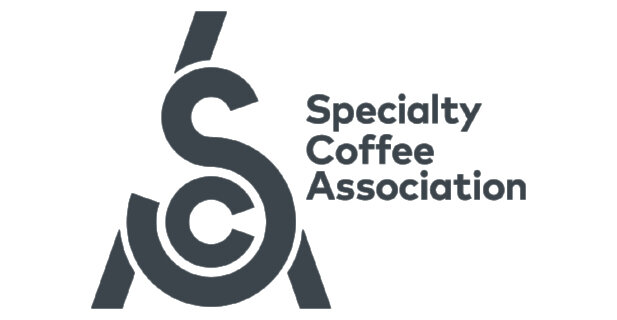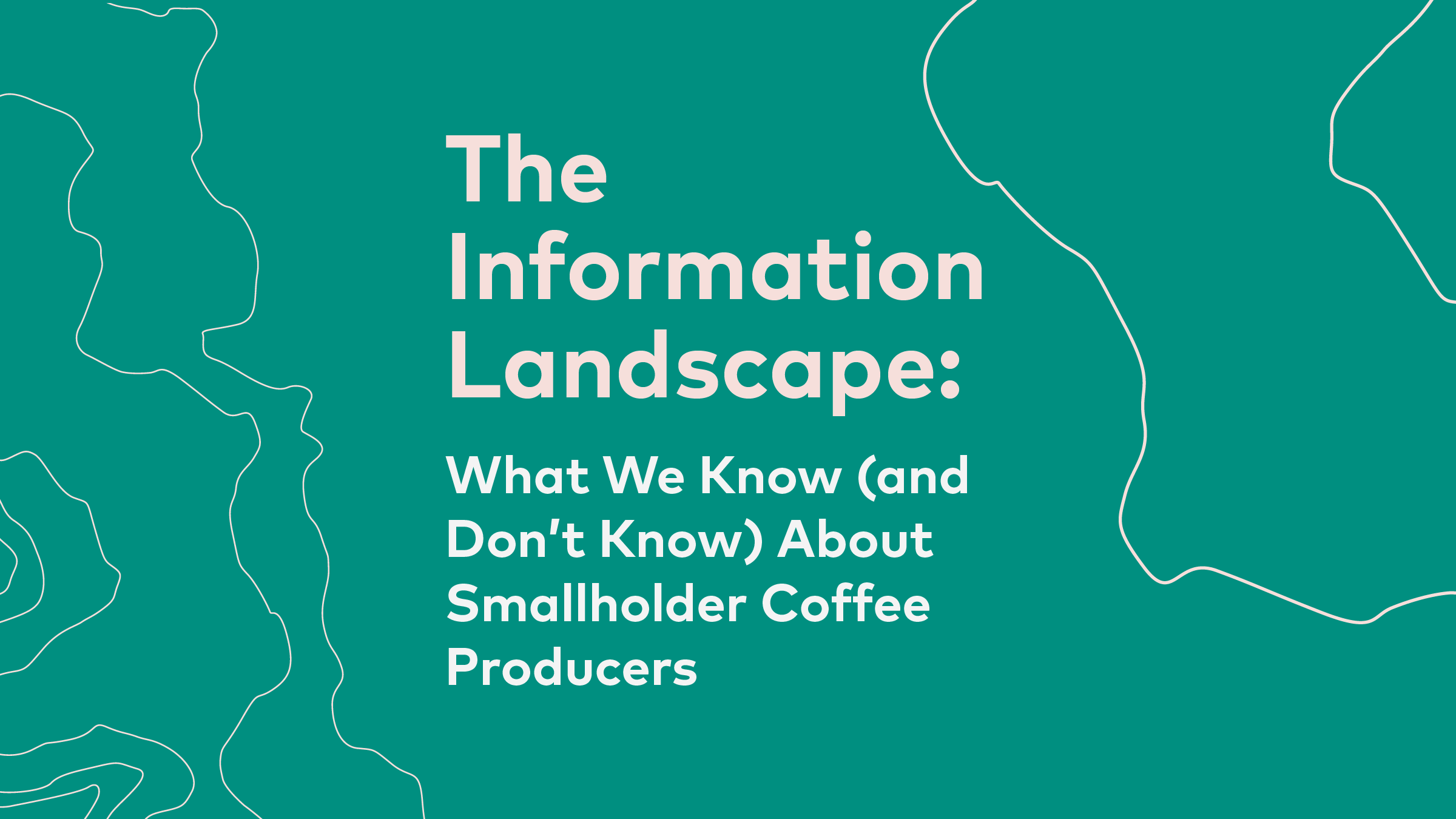The Information Landscape: What We Know (and Don’t Know) About Smallholder Coffee Producers | 25, Issue 16
Smallholder coffee farmers are essential to the coffee industry, producing approximately 60 percent of the global supply and an even higher proportion of specialty coffee.
JANICA ANDERZÉN and Professor V. ERNESTO MÉNDEZ of the Agroecology and Livelihoods Collaborative at the University of Vermont trace the efforts of a new initiative, the State of the Smallholder Coffee Farmer, and explain what’s needed to take the project beyond this first stage.
Their contributions to the coffee sector are undeniable, but what else do we know— or think we know—about smallholder coffee producers, their livelihoods, and the challenges they face? What kind of data are available, and how could these data be better used to support farmers, inform decision-making, and advocate for relevant transformations within the coffee industry?
These were some of the questions that a group of nonprofits, researchers, and statisticians who work with coffee smallholders and sustainable development had in mind when they started the State of the Smallholder Coffee Farmer initiative in late 2020. Participants from the two nonprofits (Lutheran World Relief and Heifer International) had observed that while there appeared to be plenty of data and information available about coffee production and supply chains, there were fewer data about contributions, challenges, and conditions of smallholder farmers as key actors in the coffee sector. Additionally, the data were often scattered and were not easy to find.
In recent years, many multi-stakeholder initiatives (MSIs) have set out to mobilize coffee actors across the value chain to collectively identify sustainability objectives and actions (many focused, directly or indirectly, on issues affecting smallholder farmers and cooperatives). However, these efforts have not yet resulted in a more democratic data landscape. As noted in the 2020 Coffee Barometer, there have been few efforts within the panorama of MSIs to develop and use clear and standard metrics that would allow the evaluation of change in matters that are critical for smallholders. As a result, attempts to accurately and robustly assess impacts on the lives and livelihoods of producers remain severely limited.
Connecting the Data Dots
The State of the Smallholder Coffee Farmer initiative was started as a response to missing, imperfect, unavailable, and scattered data. Our aim was to explore new ways to find and synthesize socioeconomic and environmental data specific to coffee smallholders. We also wanted to make timely and curated data widely available to all users through a report and an open-access online platform, which could help drive more meaningful and informed responses across the value chain.
For several months, the team members searched and reviewed a large number of data sources, including academic publications, reports, websites, databases, and recent landmark studies (e.g., 2020 Coffee Barometer and the SCA Price Crisis Response Summary of Work). The data exploration efforts during this pilot phase of the initiative focused on three countries— Guatemala, Honduras, and Nicaragua—and were limited to years between 2013 and 2019, a critical period of declining coffee prices and the coffee leaf rust (roya) outbreak. The team also had conversations with more than 20 actors working directly or indirectly with smallholder coffee farmers, to discuss the premise of an open-access database, and to invite them to donate data or information. While we received fewer data than expected, the conversations opened new perspectives and provided important insights about the data needs—and challenges—that different actors were experiencing.
The next step in the process was data curation, which consisted of selecting pre- calculated indicators from various sources as well as using raw data to calculate indicator values. The curated indicators were then categorized and integrated into an online platform, developed by project statisticians, to facilitate inclusive data access. This open- access platform allows all users to search indicators, browse them by categories, or filter by characteristics such as year, country, source type, and scope. Selected indicators can be viewed or downloaded as an Excel file or pdf report to obtain more information about the indicators and the sources in which the indicators were found. This is an important feature, as it allows the users to know where and why the data were collected, as well as who collected them.
While it might be tempting to make generalizations based on the data on the platform, this is not advisable for most indicators, for the following reasons. First, the indicators may not be directly comparable, and second, they describe only some aspects of the livelihoods and lives of a very diverse group of farmers in three countries. We recommend that the users visit, whenever possible, the original source, to better understand the context in which the data were collected and to learn more about the many realities of coffee smallholders.
Data Highlights
The platform contains over 200 indicators and over 600 indicator values. For the summary report, we selected “key” socioeconomic and environmental data to analyze and synthesize. As it was not possible to collect primary data in this pilot phase of the initiative, we pulled data and information from a variety of sources in order to describe characteristics and challenges of coffee smallholders in Guatemala, Honduras, and Nicaragua. While much of this information is not necessarily new, the novelty was the attempt to synthesize a vast quantit of diverse data (e.g., social and environmental) about coffee smallholders in the three countries and to identify what some of the major data gaps are.
Data included in the report confirm that while the economic and environmental contributions of smallholder coffee farmers benefit the global coffee industry, national economies, and beyond, many farmer households continue to face persistent stressors and risks that affect their livelihoods and well-being. More than 100,000 smallholder farmers in both Guatemala and Honduras, and around 40,000 smallholders in Nicaragua, produce a large proportion of the national coffee supply and generate rural employment for thousands of people. Small-scale producers typically cultivate the crop in agroforestry systems, helping to generate and protect essential ecosystem services that benefit not only the farmer households and their communities but the society at large. Yet, the data show persistent trends of households struggling to attain enough income, meet family food needs, and conserve important biodiversity. This is in stark contrast to the prosperity of other coffee value chain actors. Climate change, rising production costs, constant price fluctuations, political instability, and other factors will likely exacerbate some of these livelihood challenges, and shape coffee lands in ways that may not be sustainable for people or the environment.
Limitations and Opportunities
In addition to learning more about smallholders in Central America through the data, the pilot phase of the initiative allowed us to gain a better understanding of the availability and quality of data while helping us to identify some opportunities for improvement. The data search revealed that publicly available data and information are limited in quantity and scope, and that there are many access barriers. While there are considerable efforts to collect and store data about coffee farmers for varying purposes, a lot of the data and information are not made publicly available, may be difficult to find, or are accessible to certain user groups only (e.g., many scientific publications are behind paywalls). Moreover, many sources are published only in English, limiting the possibilities of non- English speakers to access the information.
Another issue is the variability in the indicators and metrics. While many indicators appear to be similar, they are not exactly the same, making it difficult to compare or aggregate data. Moreover, there is a lack of longitudinal data—data collected from the same respondents at different points in time. These types of data are essential for analyzing trends or evaluating change over time, such as after a major event or recurring crisis (e.g., price crises).
Finally, the process raised many questions around biases in collecting and sharing data. Some organizations may be reluctant to gather and/or present data on sensitive topics that might reflect poorly on project results, or are only interested in data that can benefit them directly. Therefore, the available data and information paint only a partial picture of the realities of smallholders, and can create “asymmetries in information,” as one person from a producing country noted. This is problematic, as data holds a lot of power, and many assumptions are made based on available data and information.
So, What’s Next?
We believe that if the community of actors in the coffee sector wants to have a positive impact on the livelihoods of smallholder farmers, the wealth of data they and others collect must also serve smallholders. They must be more revealing and transparent about producer realities, challenges, and opportunities. Moving towards a more equitable and democratic information landscape requires more coordinated efforts. These efforts should account for and minimize the burden placed at origin in collecting data, facilitate more cohesive indicators, and allow for inclusive information sharing. Collaborations among various actors—with genuine participation of all—could strengthen these processes, reduce unnecessary resource expenditure, and collectively reduce the strain of data collection and management. Designing an approach that intentionally drives participation of smallholder farmers and cooperatives in such collaborations is critical, so that they can have a stronger role in defining data priorities and have more opportunities to benefit from the data they help to provide.
The State of the Smallholder Coffee Farmer Platform is one attempt, among other initiatives, to improve the current ways of approaching and dealing with data. However, increasing the applicability and robustness of the platform will require considerable additional effort. Taking it to its full potential would entail, for example, developing collaborative agreements and common protocols that would lead to continuous data acquisition, from the same locations, on a regular basis. This will only be possible with long-term commitments from the interested parties, and the willingness from many more to share data and information. Finally, as agroecologists, we believe that there is an opportunity to connect the platform to the field of agroecology, which has a long history of work with coffee smallholders. Agroecology could serve as a source of methods and tools towards a more ecologically sound and socially just coffee value chain. An agroecological lens could also help to shift the focus from narrow indicators and metrics to a more holistic approach of evaluating what really matters and using data to guide transformations within the coffee value chain. As we explore how to move this first phase of the State of the Smallholder Coffee Farmer initiative forward, we are asking everyone in the coffee value chain to join us in the next stage of this effort. ◇
JANICA ANDERZÉN is a PhD candidate at the Agroecology and Livelihoods Collaborative, University of Vermont. V. ERNESTO MÉNDEZ is Professor of Agroecology and Environmental Studies and the Co-Director of the Agroecology and Livelihoods Collaborative, University of Vermont.
The State of the Smallholder Coffee Farmer initiative’s working group includes: Cory Gilman (Strategic Initiatives Manager – Coffee & Commodities, Heifer International), Rick Peyser (Senior Director, Private Sector Partnerships, Lutheran World Relief), Ciara McHugh (Statistician, Statistics for Sustainable Development), Carlos Barahona-Zamora (Managing Director, Statistics for Sustainable Development), Janica Anderzén (PhD candidate, Agroecology and Livelihoods Collaborative, University of Vermont), V. Ernesto Méndez (Professor of Agroecology and Environmental Studies, Co-Director of the Agroecology and Livelihoods Collaborative, University of Vermont), and Madelyn Griffeth (Research Assistant, University of Vermont).
Explore the platform and the report at coffeesmallholder.org.
We hope you are as excited as we are about the release of 25, Issue 16. Both the print edition and the availability of these features across sca.coffee/news wouldn’t have been possible without our generous underwriting sponsors for this issue: Pacific Barista Series, BWT water+more, and Brewista. Thank you so much for your support! Learn more about our underwriters here.


